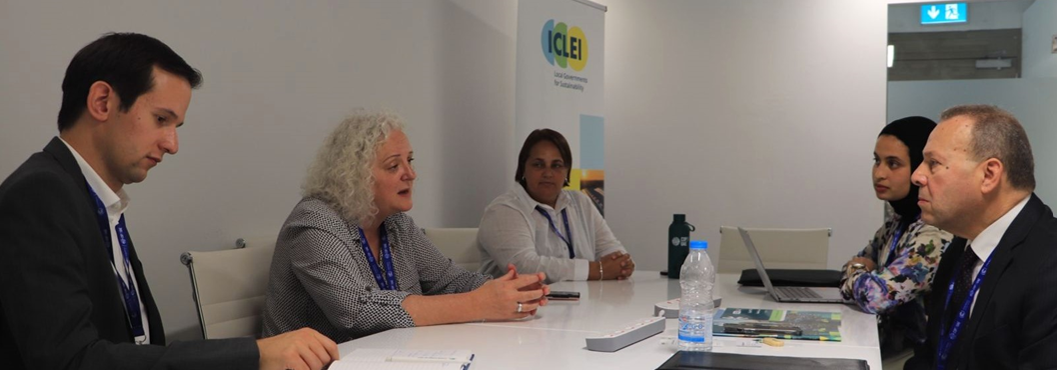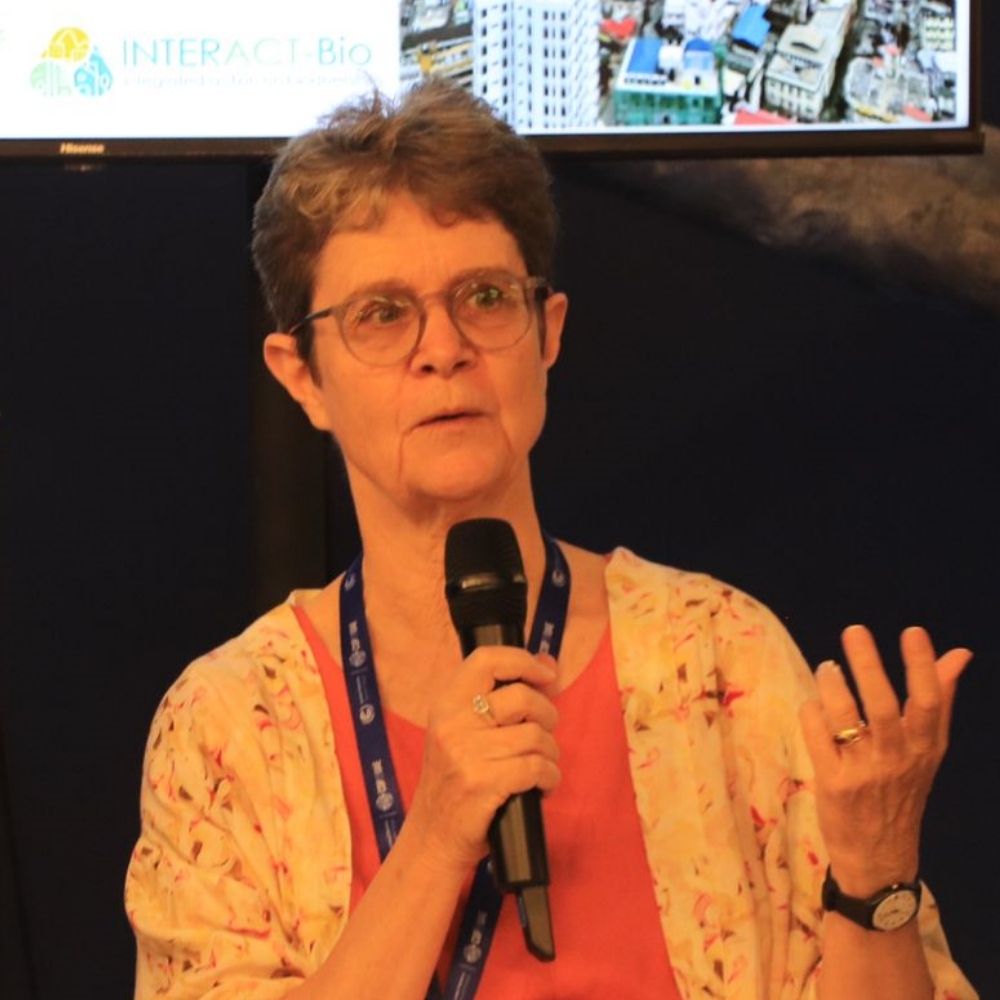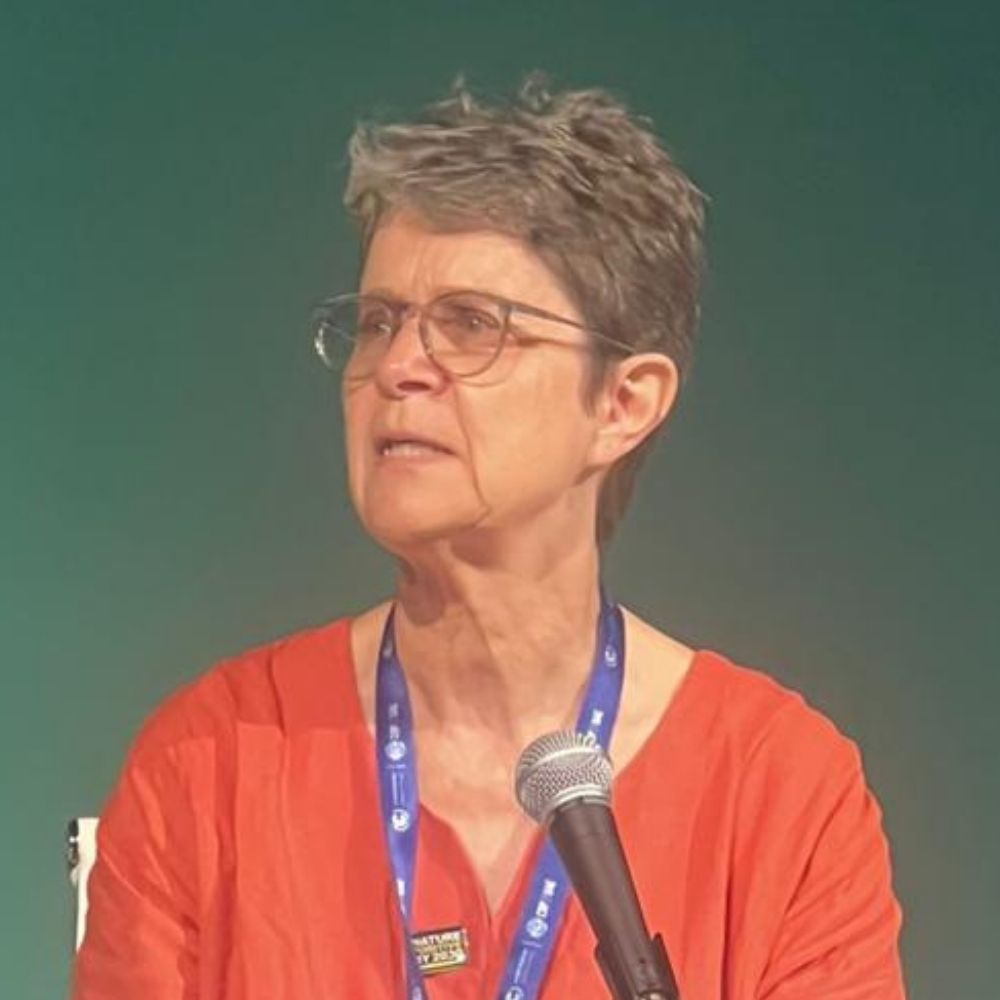


Our cities and regions across the continent are gearing up to make their voices heard loud and clear at COP28, through a range of interventions, stressing the urgent need to scale up a rigorous all-of-economy, all-of-society approach which leads to urgent and significant climate action this decade.
This year, ICLEI – Local Governments for Sustainability, the focal point of the Local Governments and Municipal Authorities (LGMA) Constituency and UN-Habitat, the United Nations entity responsible for sustainable urbanisation, have announced plans for a joint pavilion in the Blue Zone at COP28. The Multilevel Action & Urbanisation Pavilion will function as the global stage for the city and subnational climate agenda at COP28. It will not only spotlight the challenges and needs of local and subnational actors, but also showcase their accomplishments and commitments on climate action.

8 December 2023
On December 8th at COP28, the spotlight turns to Youth, Education, and Children’s Skills. Recognising the connection between education, youth engagement, and sustainable development, local authorities play a pivotal role in shaping policies that nurture the skills of the next generation. As African cities’ youth populations increase steadily, investing in education and skills development becomes a strategic imperative for local governments. This day offers a unique platform for local governments to explore innovative approaches, share best practices, and collaborate on initiatives that empower the youth, ensuring they become catalysts for positive change and resilient communities in the face of evolving climate challenges.


ICLEI is here as one of our key partners. As cities expand, it is incredibly important that connectivity is applied in the local context. Connectivity is in the Global Biodiversity Framework Target 12.
Connectivity is about cities.
Amy Fraenkel
Executive Secretary of the Convention on the Conservation of Migratory Species of Wild Animals


Our ICLEI Secretary-General & Deputy-Secretary General offices meet with H.E. Ambassador Hassan El Laity, Minister Advisor for International Cooperation, Egypt. Building on collaboration forged at COP27 towards World Urban Forum 12 in Cairo next year.
9 December 2023
On December 9th at COP28, the focus shifts to Nature, Land Use, and Oceans. This day holds particular importance for local governments as it addresses the delicate balance between environmental conservation and sustainable development. In regions heavily reliant on natural resources, the insights shared during these discussions will provide valuable guidance for local authorities in formulating responsible land-use policies and strategies for ocean preservation. Attendance on this day allows local governments to hear about best practices, form collaborations around innovative approaches, and shape policies that both promote economic growth and safeguard the rich biodiversity of the continent.
NATURE DAY
See ICLEI’s messages on nature and biodiversity, and the interlinkages with climate change here.


ICLEI collaborated, as part of the INTERACT-Bio project, to develop a thematic atlas of urban ecosystem services for enhanced greenspace management in Dar es Salaam, Tanzania. Heat was identified as a key challenge. To address this we employed approaches that were ecosystem-based and included whole of society.
Ingrid Coetzee
Director: Biodiversity, Nature & Health, ICLEI CBC
MORE INFO ON OUR INTERACT-BIO PROJECT
Integrated action on biodiversity
Supporting implementation of National Biodiversity Strategy and Action Plans through the mainstreaming of biodiversity objectives across city-regions.
Ministerial addresses alignment of biodiversity and climate goals, with space for subnationals on #NatureDay
Through this event, the UNFCCC COP28 and CBD COP15 Presidencies brought together governments and leaders across society at a ministerial roundtable to discuss the importance, challenges, and opportunities in adopting a synergetic approach in the design and implementation of national climate and biodiversity plans and strategies.




We were delighted to discuss local governance and climate action with a delegation of cities from Niger at COP28, including Niamey, one of our AfriFOODlinks champion cities driving positive change through food.
EXPLORE THE VOICES OF OUR AFRIFOODLINKS CITIES
Transforming urban food systems through knowledge sharing and exchange
AfriFOODlinks invests in direct food system change in 5 African Hub Cities and invites 10 African and 5 European Sharing Cities to join them on a mutual-learning journey, to share their innovative food systems work and to co-design pilot projects for implementation in each Sharing City. Hear from our AfriFOODlinks cities about how the project hopes to transform urban food systems through cross-continental knowledge sharing. AfriFOODlinks is generously funded by the European Union, and coordinated by ICLEI Africa.
#GenerationRestoration: Cities for urban nature restoration
This project was showcased on the COP28 Presidential event “Local Ecosystem Restoration for Nature Positive Cities and Regions” on Dec 6th organized by COP28 Presidency, UNEP, UN High Level Climate Champions, Global Commons Alliance, World Bank and ICLEI. H. E. Razan participated on the event and launched a call to action for cities and regions.




As a city network, when we advocate for ambition either on climate, plastics or biodiversity, we need to integrate intergenerational perspectives.
Cities are hubs of innovation and solutions, where young people live.
Ingrid Coetzee
Director: Biodiversity, Nature & Health, ICLEI CBC
10 December 2023
On December 10th at COP28, our attention turns to Food, Agriculture, and Water, presenting a compelling case for active participation by local African governments. This day holds profound significance for these governments as they navigate the intricate challenges of ensuring food security and equitable water distribution in the face of a changing climate. The discussions provide a unique opportunity for local authorities to share experiences, adopt resilient practices, and collaborate on innovative water management strategies. By actively engaging in the discourse on Food, Agriculture, and Water, local African governments can contribute to the development of region-specific solutions, fostering resilient and sustainable practices that ensure the well-being of their communities.


Provision of quality basic services IS climate adaptation. Ensuring women have quality energy and water services reduces time poverty associated with preparing food, fetching water, or reading and learning at night. Gender responsive budgeting can redress gender inequities and better acknowledge and shift the hidden care economy that unfairly burdens women.
Paul Currie
Director: Urban Systems, ICLEI Africa
MAINSTREAMING GENDER AND HUMAN RIGHTS INTO URBAN NATURAL ASSET MANAGEMENT
Methodology note | ICLEI Africa’s unique entry points on human and gender rights urban nature
Since 2014, ICLEI Africa has been successfully developing, enhancing and implementing the Urban Natural Assets (UNA) programme, funded by SwedBio. The focus of this latest iteration of the programme, UNA Resilience, is integrating a human rights based framework across its three interlinked pillars of work – governance, planning and finance. Introducing rights into the discussion about the environment is a useful entry point to explore nature-based challenges and their consequential threats for communities. This methodology note explores how the UNA Resilience team has been onboarding a human and gender rights based approach in Bo, Sierra Leone and Cape Coast, Ghana.


